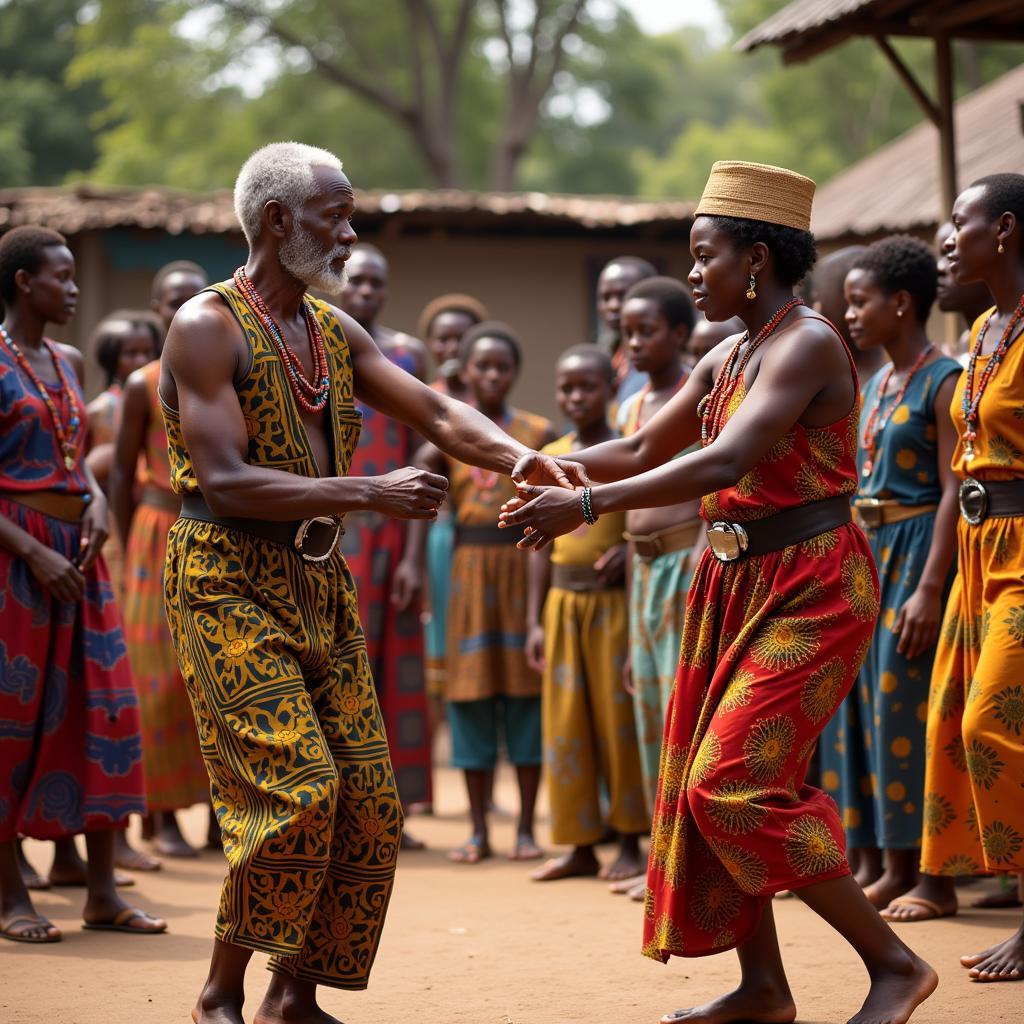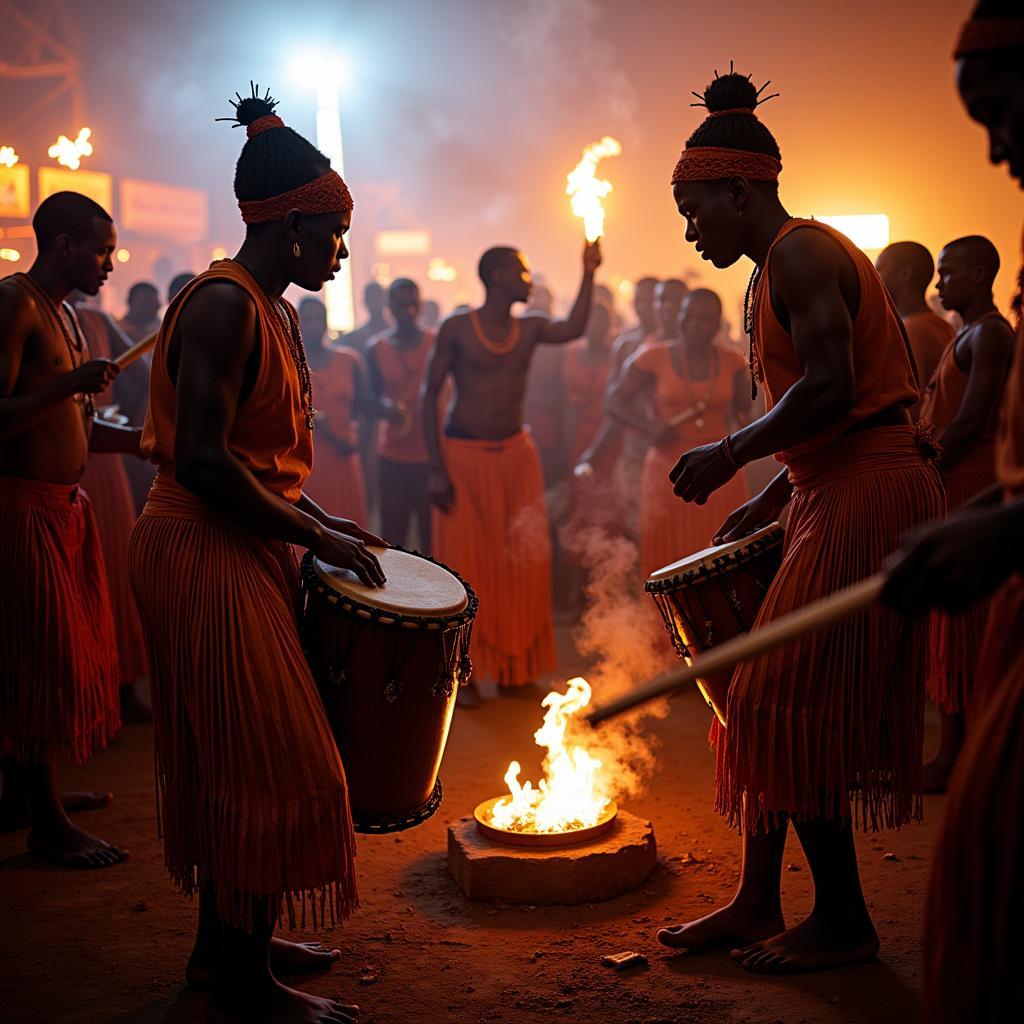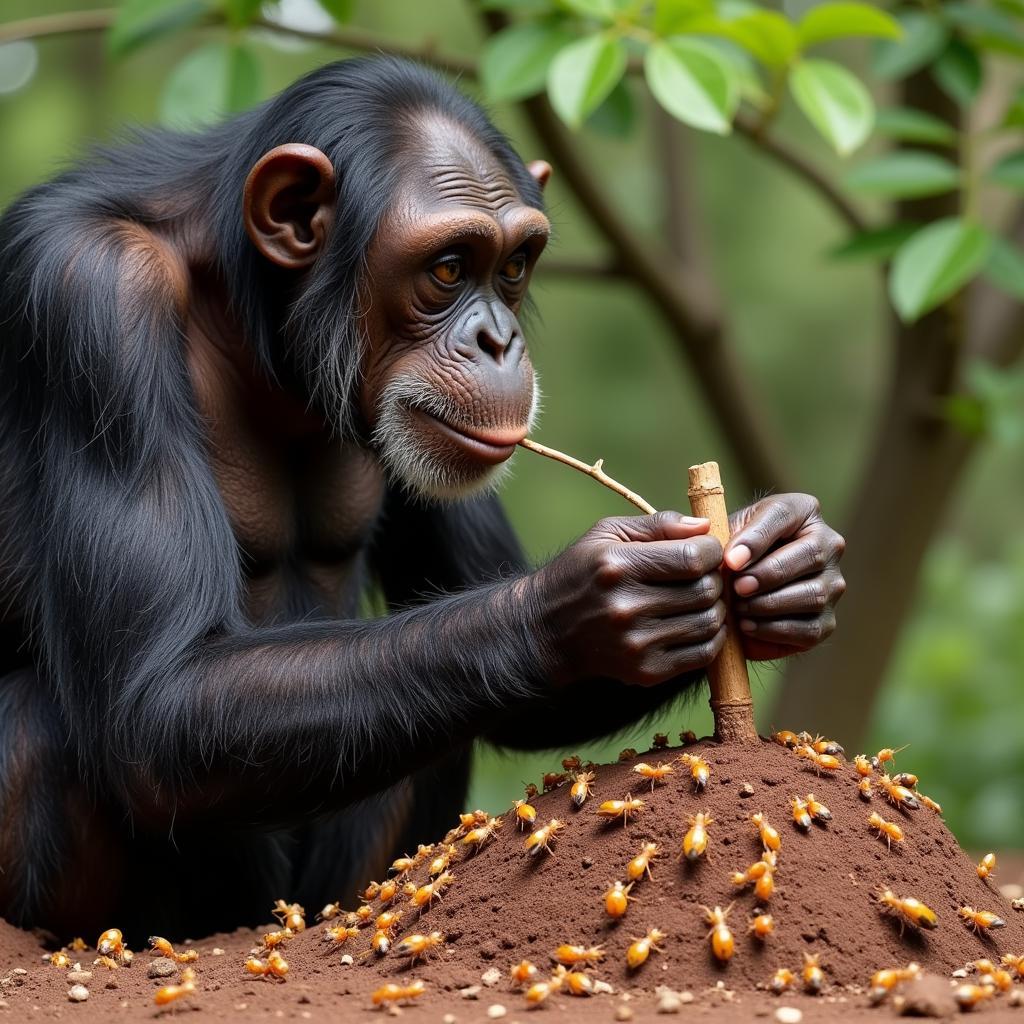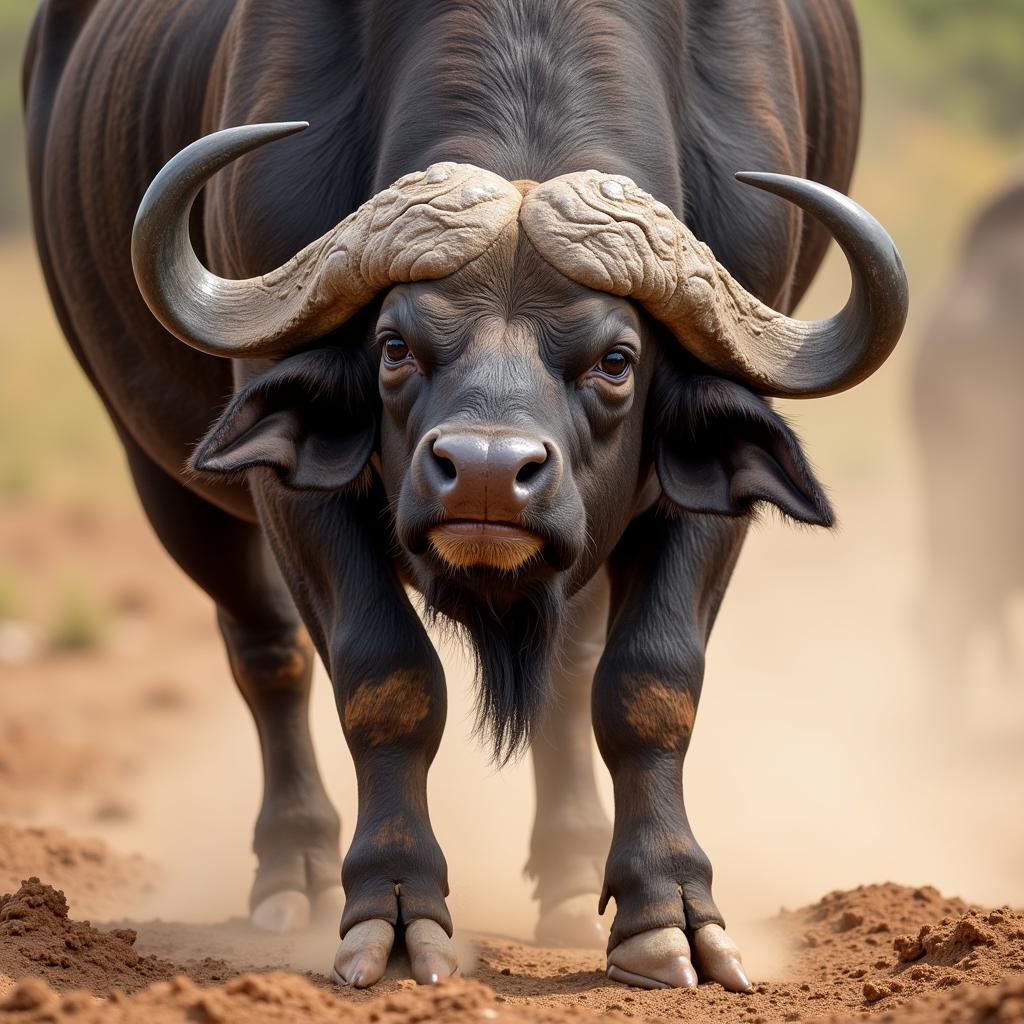African Dance Proverbs: Rhythmic Wisdom and Cultural Expressions
African Dance Proverbs offer a fascinating glimpse into the rich tapestry of African cultures. These proverbs, passed down through generations, encapsulate the significance of dance beyond mere entertainment, revealing its role as a powerful medium of communication, storytelling, and social commentary. Let’s delve into the world of African dance proverbs and explore the wisdom they impart.
The Language of Movement: Decoding African Dance Proverbs
African dance isn’t just about steps and rhythm; it’s a language in itself. Proverbs related to dance highlight this aspect, demonstrating how movement can express emotions, ideas, and even complex social dynamics. African cultural practices aesthetics offer insights into the aesthetic principles that govern these movements, revealing the profound connection between dance, culture, and identity.
For example, a proverb from the Akan people of Ghana states, “The dance of the elders does not make the young stumble.” This proverb speaks to the respect and reverence afforded to elders in Akan society, acknowledging their wisdom and experience. Their dance, while perhaps slower and less vigorous, is no less valuable and should not be disregarded by the younger generation.
 African Dance Proverbs: Wisdom of the Elders
African Dance Proverbs: Wisdom of the Elders
How Proverbs Reflect Cultural Values
African dance proverbs reflect the diverse values and beliefs held across the continent. They provide a window into the social fabric of different communities, revealing perspectives on everything from community unity to individual expression. You can further explore the cultural depth of proverbs by checking out 10 famous african proverbs.
A Zulu proverb asserts, “If you can walk you can dance; if you can talk you can sing.” This proverb emphasizes the inherent human capacity for artistic expression, suggesting that everyone, regardless of their skill level, can participate in and enjoy the arts.
When the Body Speaks: Proverbs and Nonverbal Communication
Dance in Africa often serves as a powerful form of nonverbal communication. Proverbs related to dance underscore this communicative function, highlighting how movement can convey messages that words cannot. For a broader understanding of life in different African countries, you might find african cuntry life an interesting read.
A proverb from the Yoruba people of Nigeria states, “When the music changes, so does the dance.” This proverb speaks to the adaptability and responsiveness required in life, emphasizing the importance of adjusting to changing circumstances.
African Dance Proverbs: A Celebration of Life
African dance proverbs celebrate the many facets of life, from joy and celebration to sorrow and mourning. They demonstrate how dance can be used to mark important occasions and express a wide range of human emotions.
Dr. Ayo Adebanjo, a renowned ethnomusicologist, notes, “African dance proverbs encapsulate the essence of cultural expression, providing valuable insights into the beliefs and values of various communities across the continent.”
Another expert, Dr. Fatima Mohammedi, a cultural anthropologist specializing in African dance traditions, adds, “These proverbs demonstrate the profound connection between dance, language, and social life in African cultures.”
Conclusion: The Enduring Legacy of African Dance Proverbs
African dance proverbs offer a timeless source of wisdom and cultural understanding. They remind us of the power of dance to communicate, connect, and celebrate life in all its complexity. These proverbs offer a unique lens through which to appreciate the rich heritage and artistic expressions of Africa. To delve into the intricacies of African culture further, consider reading african culture essay.
FAQ
- What are African dance proverbs?
African dance proverbs are concise sayings that express wisdom and cultural values related to dance and its significance within African societies. - Why are African dance proverbs important?
They provide insights into cultural beliefs, social norms, and the role of dance in communication and expression. - How are these proverbs used?
They are passed down through generations, often used in storytelling, teaching, and social commentary. - Do all African cultures have dance proverbs?
While not all cultures may have specific “dance proverbs,” the concept of using proverbs to convey wisdom related to artistic expression is widespread across Africa. - Where can I learn more about African dance and proverbs?
Research online, explore books on African culture and folklore, and visit museums or cultural centers.
Need Help?
For any assistance or further information, please contact us at:
Phone: +255768904061
Email: kaka.mag@gmail.com
Address: Mbarali DC Mawindi, Kangaga, Tanzania.
Our customer service team is available 24/7.



